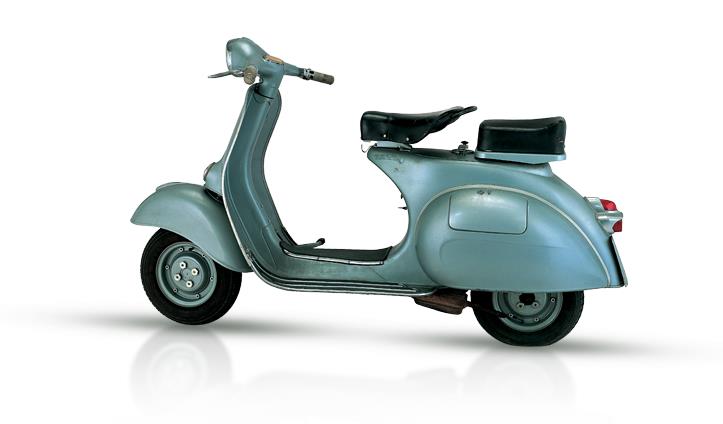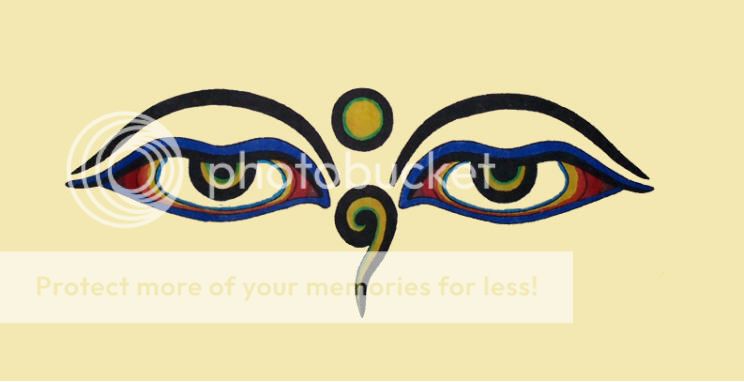It was 2004, and Javier had just moved to the first
Buddhist Center on Ribeyro street. The kids (Alfonso, Mauricio and Alvaro) had
painted the walls of the Gompa light blue. It looked beautiful!
It was Summer and we had a Dharma Teacher from
Argentina visiting us. We had a weekend course. Saturday morning after the
first session, Alfonso suggested to go have lunch across the street to Puerto
Med, a fish restaurant. We were some fifteen persons. Javier and I sat at a
table. Next to me was sitting a very stiff lady. She was well dressed and both
her hair and makeup were perfect. She had been attending the meditations, but
she really did not understand Buddhism,
We ordered and were chatting when she looked at me and
said: “Why do you date him (meaning Javier). He is old, blind and poor!” I
could not find an adequate answer. Such lack of Bodhicitta! I just hoped Javier
had not heard her. She was a pseudo-intellectual and visibly
materialistic. If that was all she cared
for what could I tell her?
Javier had worked for many years as producer and
director of commercials. He even had his own company: TVS. That all ended when
he became blind at 55, When I met him in 1999, he was already blind. He made a
living selling computers and had an internet place in Surco, with the help of
his partner Javier Fon and Kathy his secretary.
In November 2000 they moved to San Bartolo, a seaside
town South of Lima. Things worked out for a time, but by 2004 things did not go
well and they decided to close it. Then Javier moved to the Buddhist Center.
I once asked him why he had not saved money. He told
me all extra money he had invested in his company. Every year he had to renew
equipment, so he had invested in that. He lost the company before he became
blind.
When he moved to the Buddhist Center, his eldest
daughter who lived abroad, started sending him money so he could live. She also
paid for his medical insurance. He still had some things he could do. He never
gave up.
I was not rich either, but we had a great time
together. On weekends we would decide what to prepare for Sunday lunch. We
could buy pasta, sausage, or I would cook, and with little money we had
delicious meals.
Sometimes he needed money and I would lend him, but
other times I would be short of money and he would lend me! I never felt we
were poor at all! He was charming and people in the Sangha loved him.
Javier told me he liked Buddhism as soon as he heard
the first conference by Michaela. He had then waited with great expectation to
meet Lama Ole., and he practiced Ngondro diligently, Still, the best for him
was the Sangha. He belonged to a group that became his family.
It never bothered me that he was blind. I just had to take care he did not bump into
doors. He had become blind a few years before I met him and he had wisely
adapted. Being blind did not stop him from working or from learning new things
like how to make incense or cologne. He would find all the information in the
internet and find helpers to carry out the experiment. He even had a radio mini
program about the internet in Radio Miraflores! He was a great example of
resilience.
As to old age, it made me laugh, because the lady was
the same age as Javier. He was born in 1943. When he died he was 69, so he
never reached such old age.
When you are happy you see everything as nice and
beautiful. That lady must have been very unhappy to look at the dark side of
things. Both Lama Ole and Karmapa stress the importance of compassion in daily
life. She did not understand Buddhism at all. She later left the Sangha. I hope
she found happiness! As to Javier, with Lama Ole and Buddhism he was a very
happy man indeed! Like he used to say: “I feel as happy a dog with two tails!”
VIEJO, CIEGO Y MISIO (POBRE)
Era
2004 y Javier se acababa de mudar al primer Centro budista en la calle Ribeyro.
Los chicos (Alfonso, Mauricio y Álvaro) habían pintado las paredes de la Gompa de
celeste. ¡Se veía linda!
Era
verano y teníamos un Dharma Teacher de
Argentina visitándonos. Teníamos un curso de fin de semana. El sábado por la
mañana después de la primera sesión Alfonso sugirió ir a almorzar cruzando la
calle a Puerto Med, una cevichería.
Seríamos unas quince personas. Javier y yo nos sentamos a una mesa. Cerca de mi
estaba sentada una señora muy estirada. Estaba muy bien vestida y su pelo y su
maquillaje estaban impecables. Ella asistía a las reuniones de meditación, pero
no entendía el budismo.
Pedimos
la comida y estábamos conversando cuando ella
me miró y dijo: “¿Por qué sales con él (Javier) si es viejo, ciego y
misio (pobre)? No supe cómo responderle - ¡Que falta de Bodhicitta! Solo tuve la
esperanza que Javier no la hubiera escuchado. Ella era pseudointelectual y
visiblemente materialista. Si solo eso le importaba ¿qué le podía decir?
Javier
había trabajado por muchos años como productor y director de comerciales. Hasta
había tenido su propia compañía: TVS. Todo eso terminó cuando se volvió ciego a
los 55. Cuando lo conocí en 1999 ya estaba ciego. Se ganaba la vida vendiendo computadoras y tenía una cabina de
internet en Surco, con la ayuda de su socio Javier Fon y de Kathy su
secretaria.
En
noviembre del 2,000 se mudaron a San Bartolo, un pueblo balneario al sur de
Lima. Las cosas fueron bien un tiempo, pero para el 2004 fueron mal y debieron
cerrar la cabina. Entonces Javier se mudó al Centro budista.
Una
vez le pregunté por qué no había ahorrado, Me dijo que todo dinero extra lo
había invertido en su empresa. Cada año
debía de renovar equipos, entonces invertía en eso. Él perdió esa empresa antes
de quedarse ciego.
Cuando
se mudó al Centro budista, su hija
mayor, la cual vivía en el extranjero le mandaba una mensualidad para vivir.
También le pagaba un seguro médico. Pero él todavía podía hacer algunas cosas.
Nunca se rindió.
Yo
tampoco era rica, pero lo pasábamos muy bien juntos. Los fines de semana
decidíamos qué preparar para el almuerzo del domingo. Comprábamos pasta o salchichas, o yo cocinaba y con poco dinero teníamos ricos platillos.
Algunas
veces él necesitaba plata y yo le prestaba, pero otras veces yo no tenía y él me
prestaba a mí¡ Jamás sentí que fuéramos pobres! Él era encantador y la gente de
la Sangha lo adoraba.
Javier
me contó que le gustó el Budismo desde la primera conferencia que escuchó de
Michaela. Esperó con muchas ansias conocer a Lama Ole: y fue un buen
practicante de Ngondro. Para él lo mejor era la Sangha. El pertenecía a un
grupo que se convirtió en su familia.
Nunca
me molestó que fuera ciego. Yo solo tenía que cuidar que no se golpeara con las
puertas .Al quedarse ciego se había adaptado sabiamente. El ser ciego no le
impedía aprender cosas nuevas como preparar inciensos o colonias. Encontraba toda la información en
internet y buscaba ayudantes para llevar
a cabo los experimentos. Hasta llegó a tener un mini programa sobre Internet en Radio Miraflores. Él era un gran ejemplo de resiliencia.
En
cuanto a viejo me hizo reír, porque esa señora sería de la misma edad que
Javier. Él nació en 1943. Tenía 69 cuando murió. No era tan viejo.
Cuando
eres feliz ves todo bueno y bonito. Esa señora debe de haber sido muy infeliz
para ver las cosas de forma negativa. Tanto Lama Ole como el Karmapa hablan de la importancia de la compasión en la vida diaria. Ella no
comprendía el budismo. Más adelante dejó la Sangha. Espero que haya sido feliz.
En cuanto a Javier , con el budismo y Lama Ole fue un hombre muy feliz. Como el
decía: ”¡Soy tan feliz como un perro con dos colas!”






